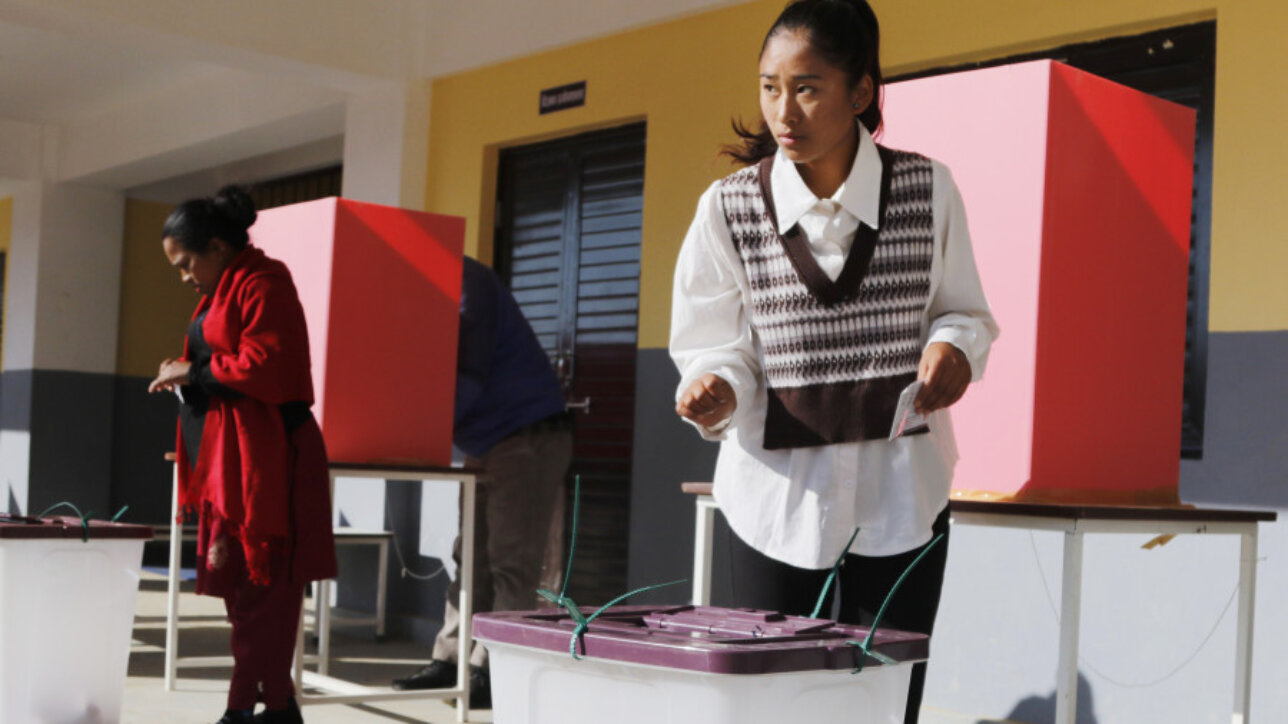This time, there were thousands who joined the fray with little resources or connections.
In my August 8 column, I had asked the question, “Will Nepal vote for change?” I had written that “given an obvious hung Parliament, the key would be to elect 15-20 people from across the spectrum, which would elevate the level of discourse in Parliament, and enable healthy discussions on legislation and significant reforms”.
Nepal has elected 50 percent new faces and shown the door to some of the established leaders across parties. Completely new faces beat some big names, and some of them had a tough time. The fact that Sagar Dhakal, a young man who was irked by the way Prime Minister Sher Bahadur Deuba had responded to him, went to his constituency Dadeldhura and got half the number of votes that the prime minister had received with all the resources at his disposal. In a country where democracy is relegated to being a five-yearly festival, there is lot to be done to improve governance, strengthen institutions and break the political-business nexus. Here are some of the key messages the voters have given.
Notes to buy votes
Harka Sampang, the mayor of Dharan who won the elections on a shoestring budget, inspired many to jump into the fray. Contrary to past practices of vote buying in many urban centres, you do not need to treat people to masu-bhat and alcohol. If you have an agenda, leverage the disdain against the existing people and order, and be a beacon of hope if you win. Toshima Karki, Sobita Gautam, Shishir Khanal and many others who jumped in proved that money does not decide the elections, at least in urban centres.
Four to 5 million Nepalis eligible to vote, or 25 to 30 percent of the electorate, cannot vote because they live outside Nepal. They are ineligible as the cartel of established political parties and leaders have worked together not to allow postal ballots or other means for these people to participate as they know they would be a big threat to them. However, it is very clear, be it in the case of Balen Shah being elected mayor of Kathmandu or the Rastriya Swatantra Party garnering a large number of parliamentary seats and votes, that the diaspora exerted an influence. The expatriate children told their parents back home whom to vote for, and they followed the advice.
When Arnico Panday, an atmospheric scientist, announced his candidature for Lalitpur-3, the key message people got was that educated people who could be working anywhere in the world have decided to give a shot at Nepali politics. He later joined the central committee of the Rastriya Swatantra Party and encouraged many others to join. One of the biggest challenges the Nepali Parliament and politics faced was lack of thinkers who could transcend global boundaries and contextualise Nepal’s future. Just being in jail for sometime or being able to raise money for the party through illicit means will not be the necessary parameter to be a successful leader. The quality of the discourse will be raised, and some of these parliamentarians joining house committees will raise the legislative process. We can never forgive the parliamentarians and their leaders in the previous Parliament who did not legislate for over three years.
It was always believed that to win elections, one had to either spend money or pay for a ticket of a major political party. It was about getting campaigners to campaign for you. It was thought that the grassroots workers of the political parties delivered wins. So feed them, get them swimming in booze, dispense money for gasoline and meet their demands, and you win! This time, there were thousands who joined the fray with little resources or connections. They won with a decent number of votes. This will ensure that more people become encouraged to contest the next elections.
In a country where a quarter of the population lives in urban centres, people do not have time to spend days following political leaders. The pandemic has disrupted how people receive and process information. It’s all about social media platforms and connecting with people of all ages. Smartphones are not limited to being tools for the young. Middle-aged people spend more time scrolling Facebook or watching videos on YouTube. If you know how to use the platform well, that is it. You have nailed it. You have to be presentable, you must know your stuff. You do not need to be great at making speeches to millions, but you must be a good communicator. Even established leaders were forced to go for popular audio podcasts and events. It is not about creating a “cyber army” to win social media but having well-crafted strategies.
Back to basics
Democracy is about good governance, and building institutions that are led by able people who help in policymaking and statecraft. It is about having the right set of people in the right places that helps to build a strong brand for one’s country. It is about tackling corruption and nepotism. It is about challenging a privilege-oriented society where some people have to be way above the rest and like to display opulence along with the power they wield. The established parties had used them to engage in rent-seeking through a mechanism known as bhagbanda (political oligopoly). They purely perpetuated the Rana and Shah rule mindset of amassing wealth, partnering with businesses, and controlling key government positions through the use of power. This fundamental flaw in Nepali democracy will be questioned and put to the test.
In Unleashing the Vajra, I had written about such a thing happening in the 2027 elections, five years from now. But I am super elated that it happened five years earlier. The journey of change has begun, and we hope this time we will not squander this “open moment” like we squandered many in the past.
Read the full article on The Kathmandu Post: https://kathmandupost.com/columns/2022/11/28/message-from-nepali-voters

